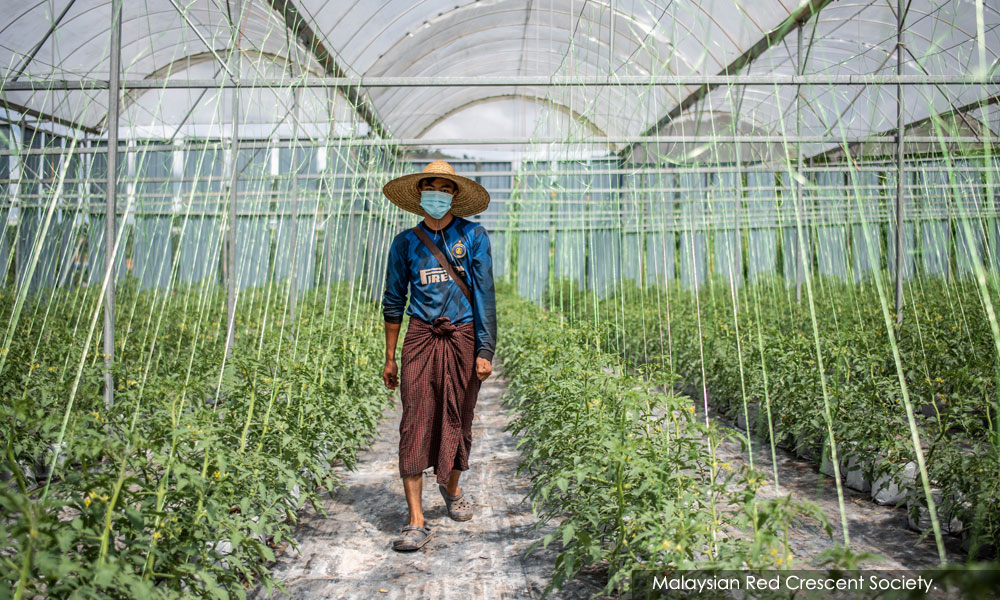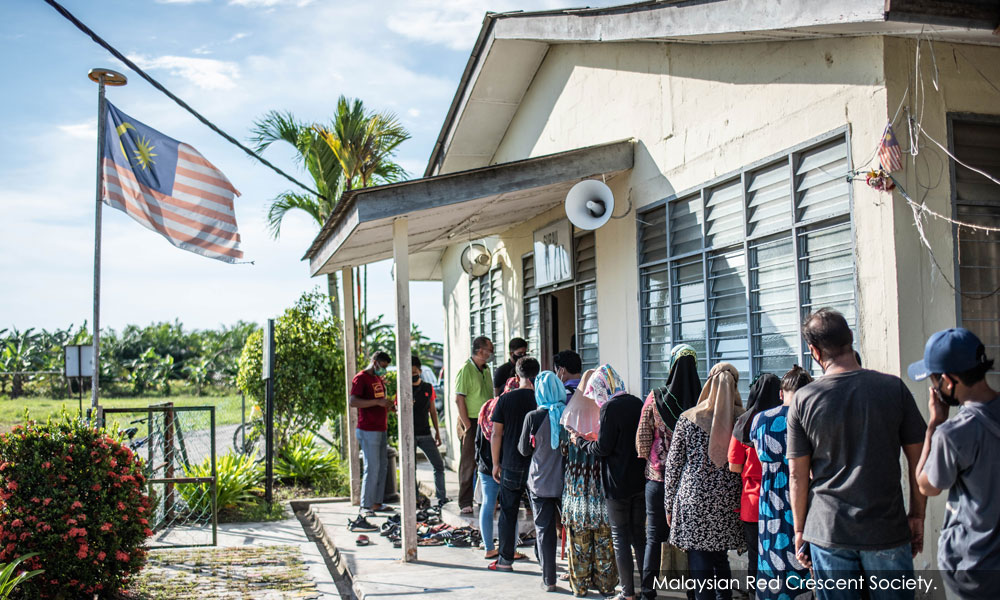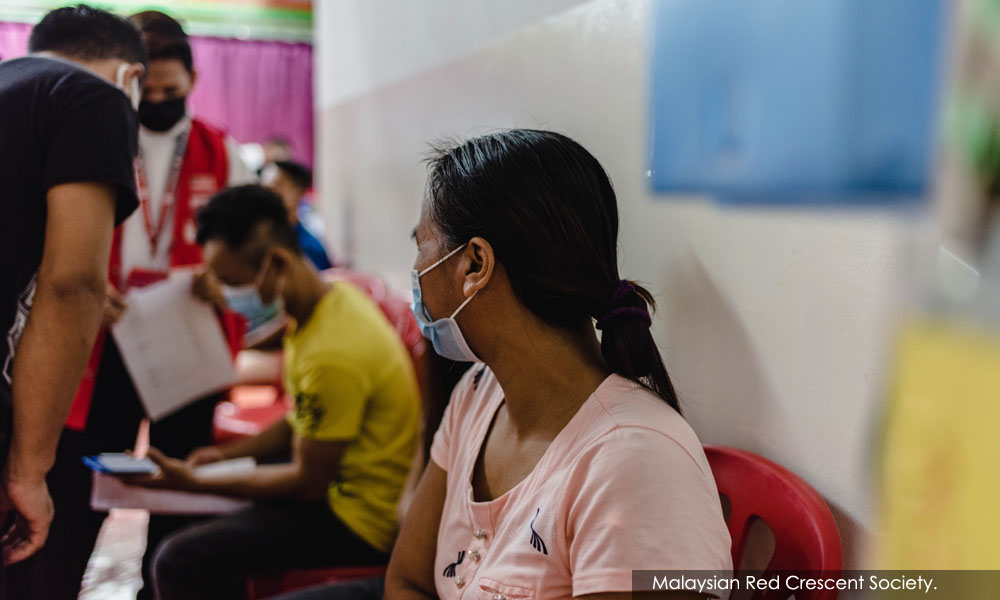At least 3,500 migrant workers were turned away at the end of Selangor’s Covid-19 vaccination programme (SelVax), revealing that a sizeable population of unvaccinated migrants still existed especially in large industrial towns in Selangor.
Klang MP Charles Santiago said the vaccination session took place as recently as September and was open to all but it only aimed to administer 1,200 shots.
He said SelVax did not expect the large turnout and most of those who were rejected at the programme were undocumented migrants who braved arrest to get vaccinated.
“Migrants live and work among Malaysians. They work in shops, serve food, work in people’s houses, shop for groceries and dine at the same places, and commute with us to their respective destinations,” he said, adding that Malaysia has had more than six months since it commenced vaccination but have not effectively addressed the welfare of vulnerable groups such as undocumented migrants.
To address the issue, Charles said there needs to be a centralised reporting mechanism of undocumented migrants who have contracted the virus and honest accounting of how many have been given their first and second vaccine doses.
He added that PPVs should be reopened, even if only over the weekend, to provide an environment where migrant workers feel safe to get vaccinated as they usually avoid government hospitals and clinics.
Referring to a recent Malaysiakini report that the oil palm sector recently logged its 40th Covid-19 cluster, which also identified high-cluster density districts in Sabah and Pahang based on the Health Ministry’s GitHub data repository, Charles along with trade union leaders and lawmakers agreed that the government now needs to make vaccination undocumented migrants a priority.

Who fears vaccination programmes and why
Charles explained that many plantation and factory owners usually employed a mix of documented and undocumented migrants and it was not only undocumented workers who have an aversion.
Their employers, too, were apprehensive of sending their workers to vaccination programmes, afraid that they would be arrested, resulting in a shortage of manpower in a period when businesses were trying to get back on their feet.
“Most undocumented migrants will not go to hospitals even if they have contracted the virus but will trust private clinics when their illness becomes severe,” he said, adding that employers also prefer to send their workers to private clinics.
Unfortunately, he said, private clinics do not dispense Covid-19 vaccines and they are only available at government hospitals or clinics now that the PPVs have been closed.
The Malaysia Red Crescent Society (MRCS), which started a nationwide mobile vaccination campaign for migrants on Sept 4, said their work would be less challenging if migrants were assured that they would not be tracked down using their MySejahtera data if they were to present themselves for vaccination.
Its secretary-general, Hakim Hamzah, said the primary challenge was to gain their trust that the authorities would not track them down or detain them.
“Every step of the way, we needed to build this trust,” he explained, adding that at least 10 percent of migrants who came forward for vaccination did not return for their second dose.
“After months of meeting and coaxing employers in the plantation sector, two plantations, one in the Cameron Highlands district and another in the Sepang district, finally relented and permitted us entry into their plantations to vaccinate undocumented workers.
“We need more employers to open their gates to us and it will be a one-off programme as we will use the single-dose CanSinoBio vaccine,” said Hakim, adding that they had vaccinated 20,165 documented and undocumented migrant workers, 8,243 stateless people and 1,907 migrant adolescents.

Hakim said they vaccinated 2,215 people in the Kinabatangan district, where it was revealed in the above mentioned Malaysiakini report that nine Covid-19 clusters have broken out since last April.
He said MRCS had not conducted any vaccination programme in the Chini and Bera districts in Pahang, which were the other two high-cluster density districts revealed in the report.
He said in total, MRCS had dispensed 35,103 vaccine shots and aimed to vaccinate 2 million people, including booster shots.
Hakim said they worked closely with 35 NGOs and community leaders to organise migrants to designated, temporary, vaccination centres and relied on them to ensure that the migrants came back for their second dose.
Labour Law Reform Coalition (LLRC) co-chair Gopal Kishnam said the Labour Department needs to play a proactive role in providing undocumented workers with information on the importance of completing two doses.
“Documented and undocumented migrants are part of our society.
“They hide away from vaccination programmes at the expense of the health of Malaysians,” he warned.
Undocumented migrants can call MTUC if arrested while getting vaccinated
Malaysian Trades Union Congress (MTUC) secretary-general Kamarul Baharin Mansor said its Migrant Resource Centre (MRC) will assist migrants whose efforts to get vaccinated are foiled by arrests and detention owing to their immigration status.
“It is wrong to use vaccination against a deadly virus as bait to nab undocumented workers whose main purpose in this country is to work, especially when their labour in factories and plantations have helped improve our economy for so many years.
“We have to make sure they agree to be vaccinated and this can only be done if there is no fear,” he said.
Kamarul whose recent trip to Kemaman, Terengganu allowed him to speak to undocumented workers hiding deep in a plantation there, said that at least 80 percent of the workers he met were undocumented and unvaccinated and living in houses they built themselves.
He added that most locals who worked in the plantation were from the older generation and they are bound to inadvertently come into close contact with workers who were not vaccinated, which increases their risk of exposure.
Declining to name the plantation owner, Kamarul said the Health Ministry could no longer wait for workers to come forward and needed to go into plantations accompanied only by MRCS.
“It will be challenging but it needs to be done,” he urged.

Meanwhile, MTUC Sarawak secretary Andrew Lo said he was not surprised with the cluster statistics revealed in the Malaysiakini report as the unions group had been ringing the alarm bell on undocumented workers in the timber and plantation sectors since the pandemic broke out in Malaysia.
Lo said the data on the clusters in the oil palm plantations were just the tip of the iceberg and it was likely that “lots of positive cases may not have been reported for fear of deportation.”
He urged government-linked companies like the Employees Provident Fund (EPF) to play a more assertive role in ensuring worker rights are not abused and everyone is vaccinated.
He explained that according to 2019 data, EPF held stakes in IJM Plantations Bhd (13.45 percent), Sime Darby Plantation Bhd (13.66 percent) and United Plantations Bhd (12.49 percent) and had a responsibility to workers to look into potential violations.
Retain the freeze on migrant intake
Meanwhile, the above trade union leaders and lawmakers also agreed that serious efforts needed to be taken to address the undocumented migrant worker issue, beginning with retaining the freeze on migrant worker intake and extending the recalibration programme once the system was up and running again.
Former human resources minister M Kulasegaran said while the recalibration for migrant repatriation was still in operation, the process for legalising undocumented migrant workers to remain and re-enter the Malaysian workforce had recently been interrupted by a system failure.
He said the Dec 31 deadline for recalibration set by the Home Ministry must be extended for at least another six months from the date the system comes back online.
Felda plantations have high-cluster density
Malaysian Palm Oil Association (MPOA) chief executive officer Mohamad Nageeb Wahab said the plantations in the high cluster-density districts shown in the data from GitHub belonged to Felda Plantations.
“The plantations in Chini, Bera and Kinabatangan district are Felda plantations and as far as I am aware, all our member companies do not have any undocumented migrant workers,” he said.
He said all member companies adhere to the sustainable palm oil certifying standards - RSPO and MSPO, to ensure their Crude Palm Oil (CPO) and its fractions are marketable to Europe and the United States.
However, Nageeb declined to comment on the ban by the US on two of its member companies over forced labour allegations last year. The two are Sime Darby Plantations with 300,000ha and FGV Holdings with 400,000ha in Malaysia.
The MSPO (Malaysian Sustainable Palm Oil) is the government’s national certification standard that, among others, provides policy on worker rights that aligned with national laws and regulations while the RSPO (Roundtable on Sustainable Palm Oil) is a global, multi-stakeholder certification initiative that details worker rights and health and safety criteria that members must adhere to, including the big plantations in Malaysia.
“Without the RSPO certification, you cannot sell to European countries.
“Malaysia has made MSPO compulsory, but the certification body had run into some difficulties with smallholders over issues like land titles” he explained. - Mkini




No comments:
Post a Comment
Note: Only a member of this blog may post a comment.